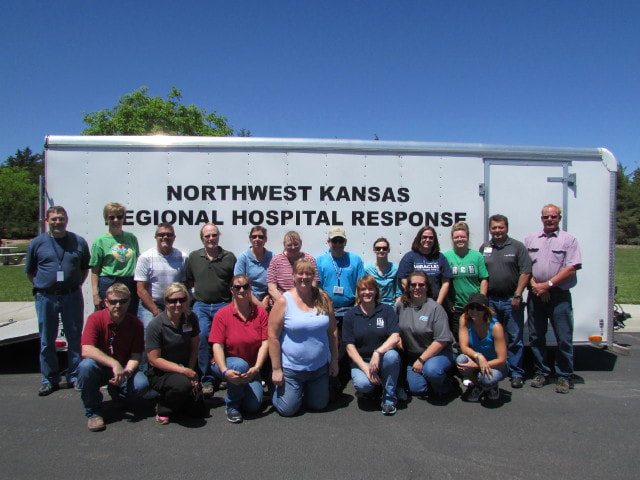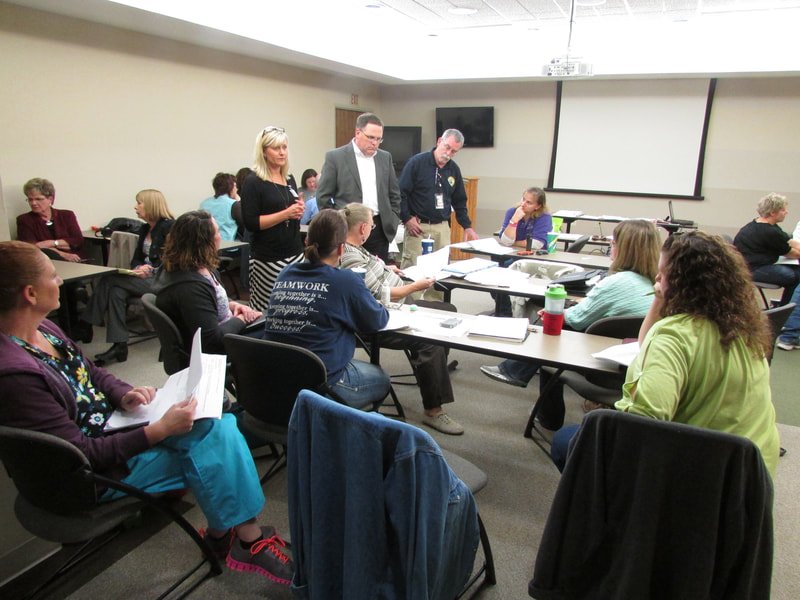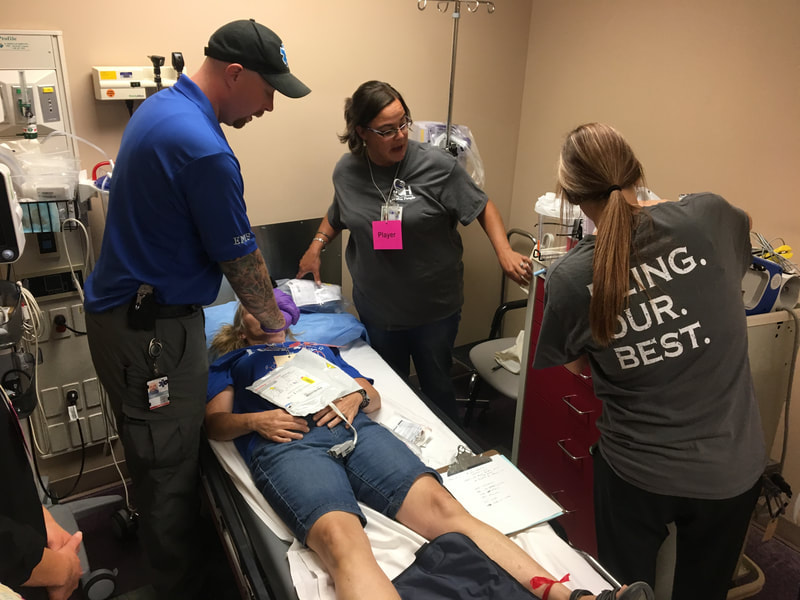About NWKSHCC
about NWKSHCC
The North West Kansas Healthcare Coalition (NWKSHCC) includes the following twelve Kansas Counties: Cheyenne, Decatur, Ellis, Graham, Gove, Logan, Ness, Norton, Phillips, Rawlins, Rooks, Rush, Russell, Sheridan, Sherman, Thomas, Trego, and Wallace.
We are a collaborative network of healthcare organizations, and their respective public and private sector response partners, that serve as a multi-agency coordinating group to enhance healthcare system preparedness, response, recovery, and mitigation activities.
In other words, Healthcare Coalitions (HCC) are healthcare system partners that come together to plan strategies for responding to local events. Healthcare Coalitions train and exercise together to maximize local capabilities related to disaster planning, response, recovery and mitigation.
The development and sustainment of the NWKSHCC is a federal initiative and a requirement of the Healthcare Preparedness Program (HPP) Cooperative Agreement funded by the Health & Human Services (HHS), Assistant Secretary for Preparedness and Response (ASPR).
The purpose of HCCs is to ensure local healthcare partners plan collaboratively for the risks facing their community and identify available local resources.
NWKSHCC also encourages the involvement of local, community-based partners. These memberships are crucial for ensuring the coordination of preparedness, response, recovery, and mitigation activities. Essential partner members include:
Membership in the Coalition is open to all North West Kansas health care providers and partner organizations who agree to work collaboratively and coordinate prevention, mitigation, preparedness, response and recovery activities.
The Coalition works to develop emergency preparedness and response systems and resources that provides an advantage to the entire community, not just Coalition members.
We are a collaborative network of healthcare organizations, and their respective public and private sector response partners, that serve as a multi-agency coordinating group to enhance healthcare system preparedness, response, recovery, and mitigation activities.
In other words, Healthcare Coalitions (HCC) are healthcare system partners that come together to plan strategies for responding to local events. Healthcare Coalitions train and exercise together to maximize local capabilities related to disaster planning, response, recovery and mitigation.
The development and sustainment of the NWKSHCC is a federal initiative and a requirement of the Healthcare Preparedness Program (HPP) Cooperative Agreement funded by the Health & Human Services (HHS), Assistant Secretary for Preparedness and Response (ASPR).
The purpose of HCCs is to ensure local healthcare partners plan collaboratively for the risks facing their community and identify available local resources.
NWKSHCC also encourages the involvement of local, community-based partners. These memberships are crucial for ensuring the coordination of preparedness, response, recovery, and mitigation activities. Essential partner members include:
- Hospital (H)*
- Public Health (PH)*
- Emergency Management (EM)*
- Emergency Medical Services (EMS)*
- Religious Non-Medical Healthcare (RNHC)
- Ambulatory Surgical Center (ACS)
- Federal Partners
- Hospice
- Psychiatric Residential Treatment Facility (PRTF)
- All Inclusive Care for the Elderly (PACE)
- Long Term Care (LTC)
- Intermediate Care Facility for Individuals with Intellectual Disabilities (ICF/IID)
- Home Health Agency (HHA)
- Comprehensive Outpatient Rehabilitation Center (CORF)
- Critical Access Hospital (CAH)
- Clinic, Rehabilitation Agency, and Public Health Agency as Provider of Outpatient Physical Therapy and Speech-Language Pathology Services
- Community Mental Health Center (CMHC)
- Organ Procurement Organization (OPO)
- Private Partners
- Rural Health Clinic (RHC)
- State Partners
- Transplant Center
- Federally Qualified Health Center (FQHC)
- End-Stage Renal Disease (RSRD) Facility
Membership in the Coalition is open to all North West Kansas health care providers and partner organizations who agree to work collaboratively and coordinate prevention, mitigation, preparedness, response and recovery activities.
The Coalition works to develop emergency preparedness and response systems and resources that provides an advantage to the entire community, not just Coalition members.


